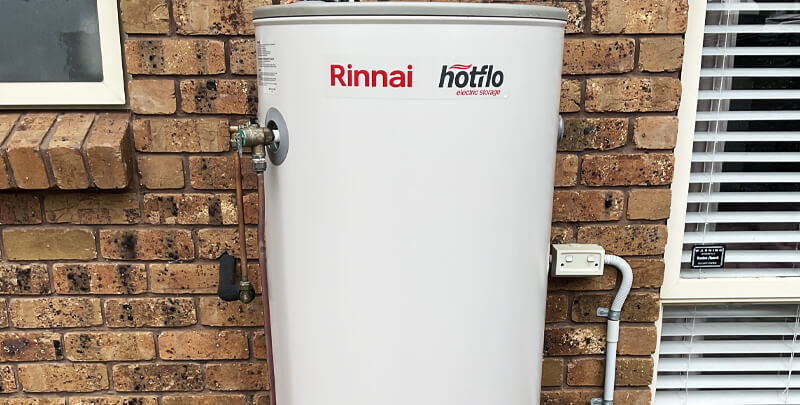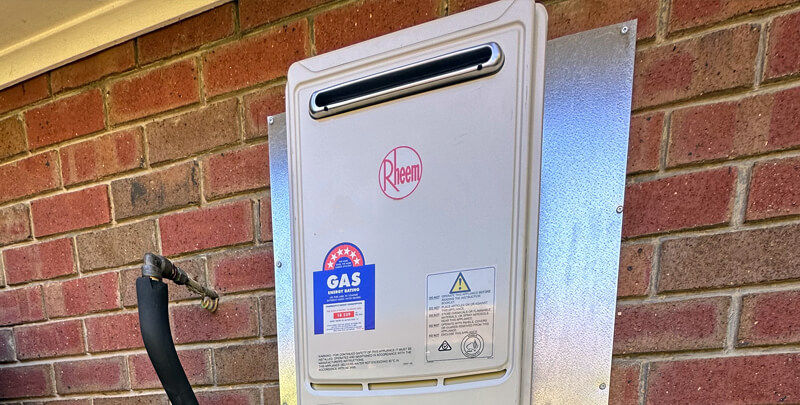The Difference Between Gas Hot Water and Electric Hot Water

Hot water systems play a pivotal role in our daily lives, providing comfort and convenience for various household tasks such as bathing, cleaning, and cooking. Regarding hot water systems, two primary types dominate the market: gas and electric.
Each class has a range of unique features, benefits, and drawbacks, making it essential to understand their differences before deciding to purchase or install one on your home.
Reliable hot water is a fundamental necessity for modern living, catering to many daily tasks ranging from soothing showers to efficient dishwashing. When comparing gas and electric hot water systems, the reliability of a consistent and readily available hot water supply becomes a key consideration.
Both gas and electric systems can offer reliable hot water, but their methods and efficiency levels differ. With their rapid heating capabilities and higher flow rates, gas systems often provide a reliable source of hot water, even during peak demand periods.
How Gas Hot Water Systems Work
These systems operate based on a straightforward yet efficient principle from https://www.energy.gov/ research. A gas burner, typically powered by natural gas or propane, ignites to heat the water within the storage pipe or tank range.
The heat exchanger inside the line or tank facilitates heat transfer from the burner to the water, raising its temperature to the desired level. As a result of a natural gas and hot water system, hot water is readily available for use whenever needed.
Advantages of Gas Hot Water Systems
Gas hot water systems boast a range of several advantages, making them a popular choice for many homeowners. One of the most notable benefits is their rapid supply and heating capability.
Gas-powered systems can heat water much faster than their electric counterparts, ensuring a steady hot water supply even during peak household usage.
Additionally, their energy consumption and efficiency are commendable, thanks to the direct heat transfer process, which translates to less energy consumption and waste loss of heat during heating.
Considerations and Drawbacks
While gas hot water systems offer numerous benefits, it’s also essential to consider certain drawbacks. The initial installation cost can be relatively higher due to the need for gas lines and associated components. Moreover, you should notice the maintenance requirements.
Periodic venting and combustion checks are necessary to ensure the system’s safety and efficiency over time.
Understanding Electric Hot Water Systems
How Electric Water Systems Work
Electric hot water systems function through a different mechanism compared to their natural gas counterparts. Instead of a gas burner, these can heat or hot water system systems utilise one or more heating elements immersed in the can heat or hot water well storage tank.
When they can heat, or the hot water okay system is activated, the heating elements generate heat, raising the water temperature within the loose heat well tank.
A thermostat helps regulate the can heat or hot water well’s temperature, ensuring it stays within the desired range. Adequate insulation prevents heat loss, maintaining the same degree of hot water well’s temperature until needed.

Advantages of Electric Hot Water Systems
Electric water systems generally have benefits and advantages that appeal to various homeowners. One significant advantage of a gas hot water system over electricity only is the usually lower initial purchase and installation cost of electricity.
These systems require a less intricate setup and installation, making them a more budget-friendly option, especially regarding installation expenses. Also, homes without access to natural gas can benefit from electric systems since they generally don’t rely on access to natural gas well lines.
Considerations and Drawbacks
However, electric hot water systems also have their limitations. They tend to have slower heating times and lower flow rates than gas systems, which might result in running out of hot water during high-demand periods.
Moreover, the operational costs can be higher in areas with expensive electricity rates, potentially impacting your long-term utility bills.
Factors Influencing the Choice
You should consider several factors when deciding between gas and electric hot water systems. Household size and hot water usage patterns determine the system’s capacity and efficiency.
Additionally, consider the full range of energy costs in your local area. High electricity prices sway your decision to purchase and install a gas system or favour installing a gas system or vice versa.
When choosing, your initial budget and installation constraints for gas system installation alone should also be weighed. You can contact professionals for assistance and services if you need help installing your hot water system.
Choose Your Water System Now
In summary, the choice between a hot water system and an electric one hinges on various factors, each with merits and trade-offs. Both systems serve the fundamental purpose of delivering hot water to your home, but their mechanisms and associated costs differ significantly.
Ultimately, the decision should align with your individual preferences, budgetary considerations, and the specific needs of your household.
Please note: This information is provided for advice purposes only. Regulations differ from state to state, so please consult your local authorities or an industry professional before proceeding with any work. See After Hours Electrical’s Terms & Conditions here.

